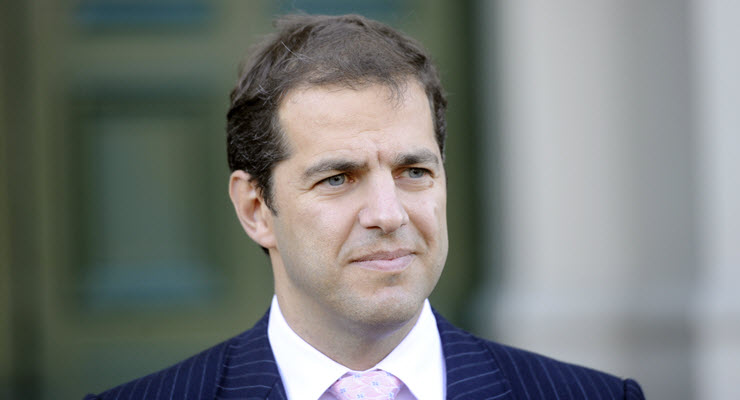
I have covered plenty of booms and busts in 40 years as a business reporter, but never both happening at the same time.
This is the only inference that can be drawn from the bizarre state of the Australian economy and business sector at the moment.
From shares to property to art, markets are booming. But at the same time big and small companies have collapsed, many more are on the verge of bankruptcy, and banks warn of dire times ahead. Unemployment remains high, the rest of the world is still in the grip of a pandemic, and a vaccine is still months away.
But hey, don’t let that stop the party starting. We’re in the midst of what I would call the Australian Relief Rally.
Recession? What recession? Apparently that was all over in a matter of months, as flush consumers spent their pent-up cash and government cheques like there was no tomorrow. Presumably because they thought there might not be.
But hey, what would I know after covering five crashes? The veteran market observers I spoke with are equally incredulous, putting it down to the new phenomenon of governments printing billions of dollars in cheap money with nowhere to go.
Former US Federal Reserve chief Alan Greenspan spoke of “irrational exuberance” before the global financial crisis, but in this case it is seems to be just irrational.
Let’s take the property sector, for example. There has been breathless media coverage about soaring prices, up to 10% higher than before the crash. The Sydney Morning Herald summed it up with this weekend’s headline, “What happened to the property price crash that was predicted but never came?”.
Low interest rates, government support and growing confidence in the economy was the answer; of course, the first two explain the third.
Meanwhile, incredibly, there has been far less coverage of the fact that one of the nation’s largest and oldest property developers collapsed last month. The Grollo family’s giant Grocon company declared administration in November with hundreds of millions of dollars’ worth of projects around the country in doubt.
When property giant Mainline collapsed in 1974 it caused an earthquake in the economy. But this time Grocon is simply treated as one of the many property company crashes currently occurring from Queensland to Western Australia.
Meanwhile diners are packing restaurants, particularly the top-end ones. Rockpool, the bizoids’ favourite headquarters, is booked solid through December. Pity the company that owns it is reportedly on the brink of collapse as well with losses of $80 million for the last half. Media reports claim the future of the business is currently in the hands of its bankers and the Australian Taxation Office.
It’s the same thing at the trendy, packed restaurants of gossip columnist fave Justin Hemmes. The latest accounts for Hemmes Trading showed profits had dropped from $4 million to just $260,000. That’s not surprising given the pandemic shutdown, but the truly disturbing revelation was that current liabilities exceed assets by a whopping $60 million.
Despite this, Hemmes just paid a bullish $32 million for a Randwick pub known as The DOG. Go figure, as the experts say.
And let’s not even get started on the booming stockmarket.
The $30 billion in IPOs and capital raisings should be causing concern — from groups like McPherson’s that report downgrades soon after they have gone to the market for cash, to the myriad new listings that are coming so thick and fast few have time to properly analyse the numbers.
“Pump and dump” is the mantra. Though stockbrokers would never say that out loud.
And don’t rely on the Australian Securities and Investments Commission (ASIC) to be the watchdog given it can’t even monitor its own finances. Two corporate cops were lost to an expenses scandal last month.
Though, to be fair, ASIC is busy investigating alleged egregious Ponzi schemes, like the case of missing Sydney financial planner Melissa Caddick. She disappeared after being raided by ASIC over some $40 million in funds which might have been misappropriated.
There are echoes of the Bernie Madoff Ponzi scheme collapse in the US at the start of the global financial crisis. Although that’s still a record at $20 billion lost. It’s early days.
It’s the Roaring ’20s all over again! At least that party started after the Spanish flu pandemic had actually ended. Though festivities did last a decade until the Great Crash of 1929.
With everything now hyped up to warp speed, we might not have to wait so long for the hangover.








It is all a bit counter intuitive. Is this modern monetary theory – whatever that is – in action? There is more than a whiff of magic pudding about all this conjuring the mirage of prosperity out of a Niagara Falls of business losses. Someone, somewhere is missing something and you can bet your bottom dollar that it is the little guy that is left holding the bunny when all this comes crashing down. Heck, the economy was in the doldrums coming into 2020. Crazy that we never realised before that the path to economic success was to infect ourselves with an deadly virus and shut the economy down for months at a time. Who would have thought?
It’s the result, as the article mentions, of governments pumping out cash like crazy. It’s going to the wealthy and they have to put it somewhere. So they buy assets as fast as they can – stocks, property, anything really – and the prices of those things rocket up, encouraging others to jump on the bandwagon. Governments, since they started this game during the GFC, are terrified of what happens when the music stops, so they pump out even more money and the fun continues for another day. This process is completely independent of anything happening in the real world – unemployment, companies going bust, epidemics, war – who cares? Just keep the money pumping.
It’s dramatically accelerating the gap between rich and poor, because those with capital get all the benefit of their assets zooming up in price, while everyone else is left stranded as house prices go ever higher at the same time as wages stagnate.
Will the music actually stop or can this go on forever? We are going to find out.
No, not MMT. MMT holds that governments can print money, the only brake on that being once full employment has been achieved and before inflation kicks off.
This the dying breath of classical economics, holding down interest rates and buying bonds while subtly directing all excess money into asset classes, and keeping wages low. Don’t let anyone convince you this is MMT.
MMT is the only hope for ordinary working people in a society that is increasingly creating robots and automation to replace workers, the stupidity of this beserk capitalist system fails to understand that no matter how cheap automation makes a product if there are no cashed-up consumers to purchase these cheap products they cannot sell them and the economy collapses..
Boom and bust is a trait of capitalism, it’s now in it’s death throes though – the booms are now artificially held up by giving money to the well off, the rest can go bust.
Grocon “with hundreds of millions of projects around the country in doubt.”
Gosh, that’s a lot of projects. Several projects for every Australian!
Yes, so glad that I have several of them tucked away for a rainy day.
Good to see the article was corrected after your prompt, Sinki.
I moved ou.t of the share market in August last year, it was around 6500 at the time. It had already been steering away from fundamentals then.
Since then the market has lost contact even with its artificial world, and gone off its rocker. There are no fundamentals any more.
I’m not saying don’t have any investments in the stock market, if you want to, just know that your money isn’t in an asset class anymore, it has gone into a casino.
Are you smart enough to leave the casino before closing time? Good luck with that, even with bonds and cash returning close to zero returns they still look like a sound investment. The Ponzi scheme is now the stock market.
Hoping there is a return to normal for that and housing markets, but to get there would require a substantial recession. The Reserve built up this Ponzi scheme and is defending it to the hilt.
Problem!
When ads on the same tabloid radio station spruik 4.5% returns on finance company paper I hear the Caterwauling Catamite in the late 1980s promoting Investment Equity (offering 20+%) until the morning of its collapse.
At least he also lost bigly in that scam which is some small justice.
The index is not the market, individual stocks should be the focus, and yes many are over valued but there can still be individual value, within a diverse portfolio.
Further, many international investors, e.g. Canadian Teachers’ Fund (like super funds), would look at long term value of growth and/or income in the ASX while many nominally Australian shares are based on their global investment and income streams, not just a local one trick like property ‘market’ which precludes liquidity and moving in or out of assets.
“.… Alan Greenspan spoke of “irrational exuberance” before the global financial crisis ….”
Not so, his reference to irrational exuberance was in a speech made in December 1996. He completely failed to foresee the GFC.
When the whole farrago was just raising momentum (and capital) for the Gadarene rush to the precipice.
One of his best lines was ” I know you think you understand what you thought I said but I’m not sure you realize that what you heard is not what I meant”.
Which was the line the Abbott interregnum used constantly after its string of broken promises such as ‘lockstep on Medicare” & “no cuts to the ABC”.
Since the neolib takeover of Western governments in the 80s resulted in so much asset stripping of taxpayer infrastructure that the mounting profits became so vast that money itself became a commodity rather than merely a symbol of the means of exchange.
That is why the DJ breached 30,000 despite (because of?) the defeat of Trump and C19 deaths topped previous records.
The only country making ‘stuff’ in sufficient volume to keep retail in the West churning is China, solely because it does not cleave to financial strictures, aka market signals, so the money-go-round continues, however shakily..
As noted “…governments printing billions of dollars in cheap money with nowhere to go” is certain to end badly.
Pass the parcel or musical chairs, call it anything but what it is – fraud on an internatinal scale never before contemplated (nor possible).
2021 will certainly be Interesting Times.
It’s not the printing of money it’s how and where its distributed that matter, money is simply a promissory note, it was the restrictions of the gold standard that caused the great depression and the printing of money when nations abandoned it that got the smart countries out of it while the dumb U.K and Australia wallowed in it for 10 years more than needed